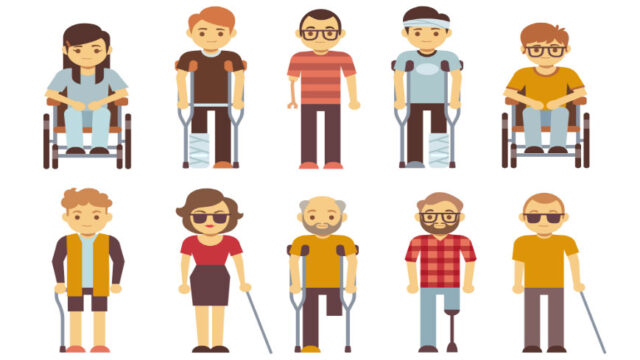
Are you struggling to maximize the value of your disability claim? If so, you’ve come to the right place! In today’s blog post, we’ll be going over a few creative ways to make sure you get the maximum compensation possible for your disability claim. No need to worry – with our tips, you’ll be able to tackle this tricky task with ease!
Working with a Disability Lawyer to Maximize Your Claim

Working with a disability lawyer can help ensure that you maximize your compensation in your disability claim. Disability lawyers handle claims related to all types of disabilities, including physical, mental, and emotional injuries. They assess the client’s eligibility for benefits, explain the claim process and help them to maximize their settlements.
A disability lawyer may assist in:
- Negotiating with insurance companies on behalf of their clients.
- Representing them at hearings with the Social Security Administration (SSA).
- Securing evidence or documents that are beneficial to their client’s cases.
- Identifying potential errors or mistakes when filing a claim or appeal.
- Submitting legal arguments that support their client’s position.
- Advocating for the best possible outcome in court proceedings.
With experienced legal representation, you may have a better chance of being approved for benefits and being able to negotiate a higher amount than what is offered initially by an insurance company or SSA. If you’re seeking Social Security Disability Insurance (SSDI) benefits of Supplement Security Income (SSI), there are limits on how much you may be able to recover so it’s important to work with an experienced professional who understands the regulations and requirements associated with SSDI/SSI claims.
Establishing Eligibility for Disability Benefits

When filing for disability benefits, it is important to understand the eligibility requirements. To begin the claims process, you must submit an application to your state or private disability insurer with medical evidence and other supporting information. This medical evidence will help prove that you are suffering from a condition that accounts for a disability under applicable laws and regulations.
The medical evidence must describe your medical condition in detail, including the symptoms associated with it, when they began, any treatments used or recommended, and any functional limitations it may have caused. It is also important to provide supporting documentation of your diagnosis such as lab results and imaging studies.
It is critical to ensure that your application fully and accurately reflects how your condition has impacted your ability to work – including documentation of physical or mental impairments impacting motor skills, sensory abilities, language skills, cognitive functions, or behavioral issues which might prevent you from performing regular job duties. If you are able to work at all despite having a disability there may be benefits available through Social Security’s Ticket to Work program.
Understanding the Different Types of Disability Benefits

The most common types of disability benefits include:
Social Security Disability Insurance Benefits (SSDI): This type of benefit is available to individuals who have worked in jobs covered by Social Security and have earned enough credits over a certain period of time as required by Social Security regulations.
Supplemental Security Income Benefits (SSI): This type of benefit is intended for individuals who have limited financial resources and demonstrate financial need but are ineligible for SSDI due to a lack of work history or insufficient credits. It provides an income supplement to full-time workers so they can make ends meet.
Long-Term Disability Benefits: These are private insurance policies that typically replace up to 60% of your income in cases where a medical condition makes it difficult or impossible to perform your normal job duties on a full-time basis, regardless if you qualify for either SSDI or SSI benefits.
Vocational Rehabilitation Benefits: These are programs designed specifically as an aid for people with disabilities who are able to return back into the workforce at some level but may need assistance with finding employment or retraining for different roles depending on their medical condition(s). The purpose is twofold – helping individuals become employed again as well as reducing government costs associated with paying out disability benefits above what that individual could earn in wages from working again after treatment/training has helped them reenter the workforce.
Appealing a Denied Claim

If your application for benefits has been denied, you have the right to appeal. The appeals process is fraught with opportunities for mistakes and frustration, so it’s important to know your rights and be prepared before you get started.
The appeals process is outlined in the Social Security Disability regulations. There are four levels of review you can pursue:
- Reconsideration: You can request that your claim be reconsidered without having to formally appeal the decision.
- Hearing by an Administrative Law Judge (ALJ): An ALJ will review your medical record and consider any new evidence or testimony presented. This typically takes place several months after a reconsideration request has been made.
- Appeals Council Review: The Appeals Council may either deny or grant a request for review, or it may choose to remand (send back) the case to an ALJ for further consideration. Typically, this process takes several months from start to finish.
- Federal District Court Appeal: If all else fails, it’s possible to take on a federal appeal, though this option should only be pursued after all of the other levels have been exhausted, as it is much more involved and costly than the other stages of a disability appeal.
It’s important that you carefully review all of your options when appealing a disability claim, as there are numerous rules and regulations that must be followed in order to receive approval of benefits at each level of review. Working with an experienced legal advocate can be invaluable in helping ensure that you maximize the chances of success in receiving compensation.
Staying Informed of Changes to Disability Laws and Regulations

It is important to stay informed of changes to disability laws and regulations, as these can affect your compensation. Keep in mind that any changes to government policies or physical requirements relating to claims may influence how much you are eligible for in terms of payments.
For instance, if the federal government changes its definition of what constitutes a disability, such as whether the effects of a disabling condition must be expected to last for six months or more, this could impact your ability to obtain compensation. Additionally, any new physical requirements associated with a claim could also alter your chances of receiving benefits or have an effect on the amount you may receive.
Final Words
In conclusion, there are a number of ways to maximize the compensation you can receive in your disability claim. It’s important to consult with an experienced legal professional before filing any claim, as they can help determine which strategies are most likely to achieve a successful outcome. Additionally, gathering all the necessary evidence and documenting your case thoroughly will give you the best chance of receiving maximum compensation for your claim. Taking these measures can help ensure that you get the financial support you need during this difficult time.









